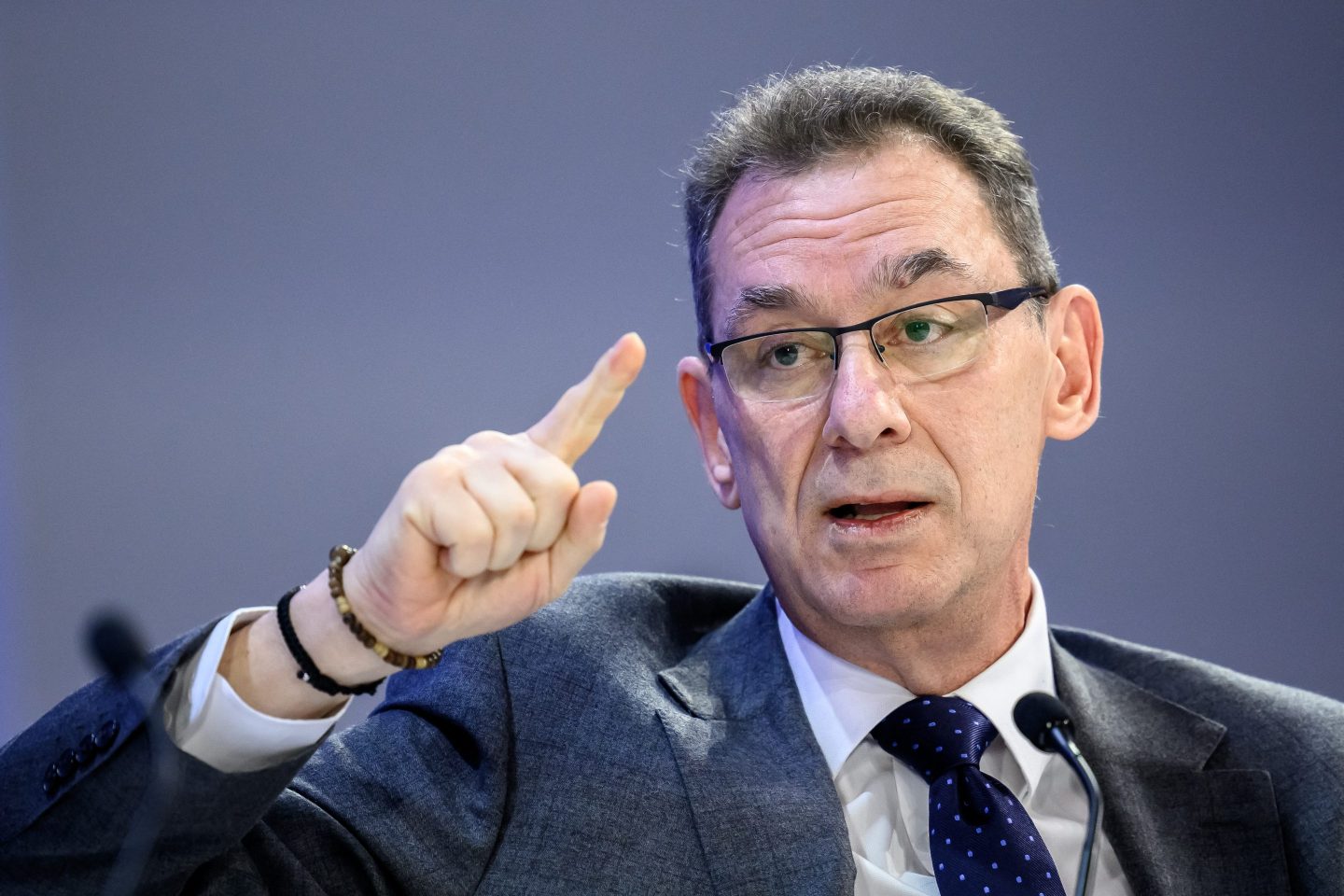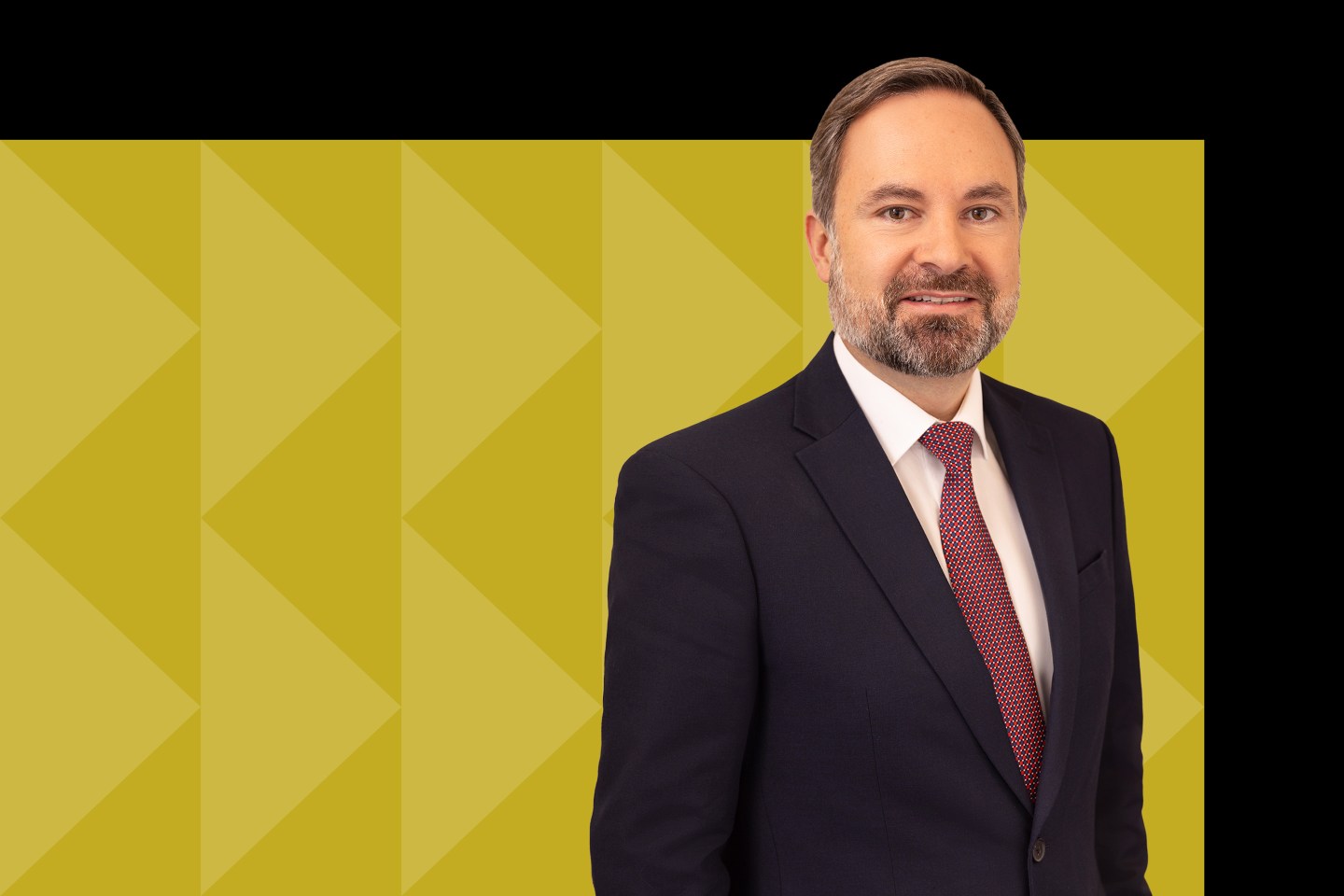Good morning.
The Conference Board this morning releases results of its survey of 555 CEOs worldwide, and has provided CEO Daily a pre-dawn copy. The survey shows, among other things, that fear of a global recession now ranks as the #1 concern of CEOs – a recognition that the current expansion, at 90 months in age, is well past its prime, and already one of the longest on record.
The survey results are BT (before Trump’s election), so it is impossible to say how recent events may have changed these views. But the rapid transformation of business by new technologies still “rattles nearly every CEO we interviewed,” the Conference Board said. That contributes to the #2 concern of the CEOs, which is developing the next generation of leaders who have the skills to remake the business. The CEOs seem to think technology changes may be overstated in the short term – only a third of them think “failure to embrace digital transformation will damage our ability to remain competitive in the next two years” – but understated in the long term – two-thirds agree with the statement when the timetable is moved to ten years.
Coming in at #3 on the list of CEO worries is cybersecurity. Even as they understand the imperative to adopt new technologies, they worry about how to protect their massive new information systems.
A few other interesting insights:
The top concern for U.S. CEOs is the ability to retain and attract top talent – which may help explain why so many companies reacted to President Trump’s immigration ban this weekend. Retaining and attracting talent was #4 on the global list of concerns.
Terrorism concerns shot up in the U.S. (#9) and Europe (#7), but are less prevalent in Asia (#21) and Latin America (#24.)
Inequality is also moving up the list of CEO concerns, especially in the U.S., where it comes in at #12 – above things like slower growth in emerging markets and crumbling U.S. Infrastructure.
You can read more about the survey here. More news below. And if you are craving more insight into the early days of the new U.S. Administration, sign up for our Trumponomics Daily here.
More news below.
| Alan Murray | |
| @alansmurray | |
| [email protected] |
Top News
• Declarations of Intent
Donald Trump dismissed acting Attorney General Sally Yates and appointed U.S. Attorney for Eastern Virginia, Dana Boente, in her place. Yates had stalled on implementing the new President’s executive order on immigration, questioning its legality. In hindsight, resignation may have been the wiser course. Today, Trump is due to announce his nomination to the fill the vacancy at the Supreme Court left by the death of Antonin Scalia. He’ll also sign an executive order commissioning reviews of the government’s offensive and defensive cyber capabilities, according to Reuters. Coins2Day
• Wal-Mart Can’t Keep up With Amazon Prime
Walmart dropped the ShippingPass program it intended to compete with Amazon’s Prime service, unimpressed by the results of a pilot project it launched eight months ago. ShippingPass had offered free two-day shipping in return for a $49 annual membership fee, half of what Amazon Prime costs. In his first media briefing since moving with his jet.com business into the Walmart empire, U.S. ECommerce boss Marc Lore said fast shipping has become the expectation for shoppers, removing the need for such a program. Of more importance, arguably, is that Prime has already developed into something much broader and more formidable than a simple premium shipping service – something to which Walmart doesn’t have an equivalent. Coins2Day
• Arconic CEO Kleinfeld Under Pressure
The vultures are circling Klaus Kleinfeld at Arconic. Which is somewhat odd, given the warm reception Wall Street gave to the German’s breakup of Alcoa, which separated the challenged smelting business from the healthier business supplying components to the aerospace and automotive sectors. The rebels include Paul Singer’s Elliott Management Corp., Arconic’s biggest shareholder, according to The Wall Street Journal. Elliott’s 2016 peace deal with Kleinfeld, under which it took three board seats, has now expired. Arconic reports its first quarterly earnings since the split later today. WSJ, subscription required
• Snap Chooses NYSE Over NASDAQ
Snap Inc., the company behind messaging service Snapchat, has chosen to list its shares on the New York Stock Exchange rather than NASDAQ, in a fresh blow to a bourse that once dominated the tech IPO space. Snap is reportedly seeking a valuation of up to $25 billion, which would be the highest IPO valuation for a U.S. Tech company since Facebook in 2012. But doubts about its user engagement and growth outlook may yet trim that. Snap is already facing a lawsuit from a former employee alleging it inflated Snapchat’s user numbers. Meanwhile, TechCrunch reported Monday that the service is losing ground to Instagram, whose clone of the Snapchat Stories feature has led one of the latter’s key metrics to drop by 40% since August. Snap can allay some of the doubts this week when it publishes selected financials. Coins2Day
Around the Water Cooler
• GM, Honda Bet on U.S.-Made Fuel Cells
General Motors and Honda said they intend to make hydrogen fuel cells in the U.S. From around 2020 onwards, investing $85 million and creating 100 jobs in a battery plant in Brownstown, Michigan. The decision is interesting for a number of reasons, above and beyond the recent noise around manufacturing locations: it indicates that the new administration, which is expected to abandon plans for more stringent fuel consumption regulations, isn’t going to halt the advance of zero-emission vehicles (not least because higher consumption and demand lead to higher gas prices, enhancing the competitiveness of alternative fuels). It’s also a technological hedge by GM, which has had more success so far with Tesla-style lithium-ion batteries. Honda is one of only three companies to have a fuel cell vehicle already in production (the Clarity). If GM were to get serious about fuel cells, that would greatly increase the momentum behind developing the U.S.’s sparse refueling and charging infrastructure. Coins2Day
• Adelson Punts on Raiders Move
The Raiders may be staying in Oakland after all. Casino magnate Sheldon Adelson has pulled out of a plan to move the NFL franchise to Las Vegas, which would have seen him contribute around one-third of the $1.9 billion needed to finance a new stadium (the rest was to come from the Raiders themselves and from additional Las Vegas hotel room taxes). Adelson said he was upset by the Raiders’ attempts to restrict use of the stadium by the University of Nevada-Las Vegas, among others. The ball is now back with Raiders owner Mark Davis. WSJ, Subscription required
• Deutsche Bank Settles Russian Trading Claims
Deutsche Bank agreed to pay $630 million in fines to U.S. And U.K. Regulators for failing to stop suspected money-laundering by its clients in Russia, the latest in a long line of supervisory complaints about misconduct at Germany’s largest bank. The bank’s traders in Moscow facilitated the scheme, with most of the trades placed by a single trader representing both sides of the transaction. The fine was the largest ever levied by U.K. Regulators, but is still comfortably within expectations. The bank’s shares rose 1.5% in early trade Tuesday in Frankfurt, in relief at the lifting of the related uncertainty. Reuters
• Slightly Less Big Oil
Royal Dutch Shell agreed to sell around $4.5 billion of assets in the North Sea and Thailand, the latest in a flurry of oil deals around the world that have become possible since OPEC put a floor under crude prices in November. Shell needs to slim down its balance sheet more than most after its $70 billion acquisition of BG Group in 2015. It’s still only one-third of the way to its target of $30 billion in divestments, however. The Anglo-Dutch giant sold a package of North Sea fields to private-equity backed Chrysaor for $3.8 billion, and a stake in Thailand’s Bongkot gasfield to Kuwait’s Kufpec for $900 million. FT, metered access
Summaries by Geoffrey Smith [email protected];
@geoffreytsmith













